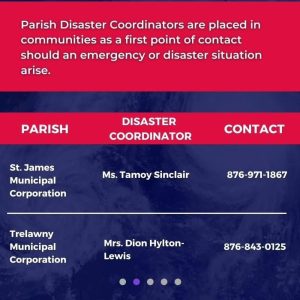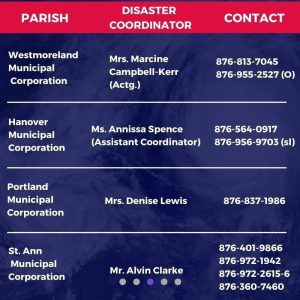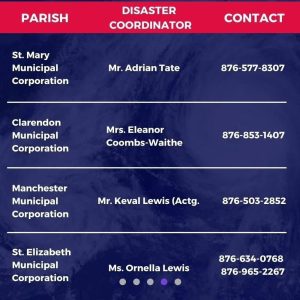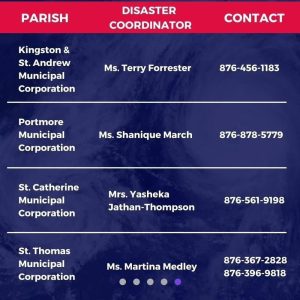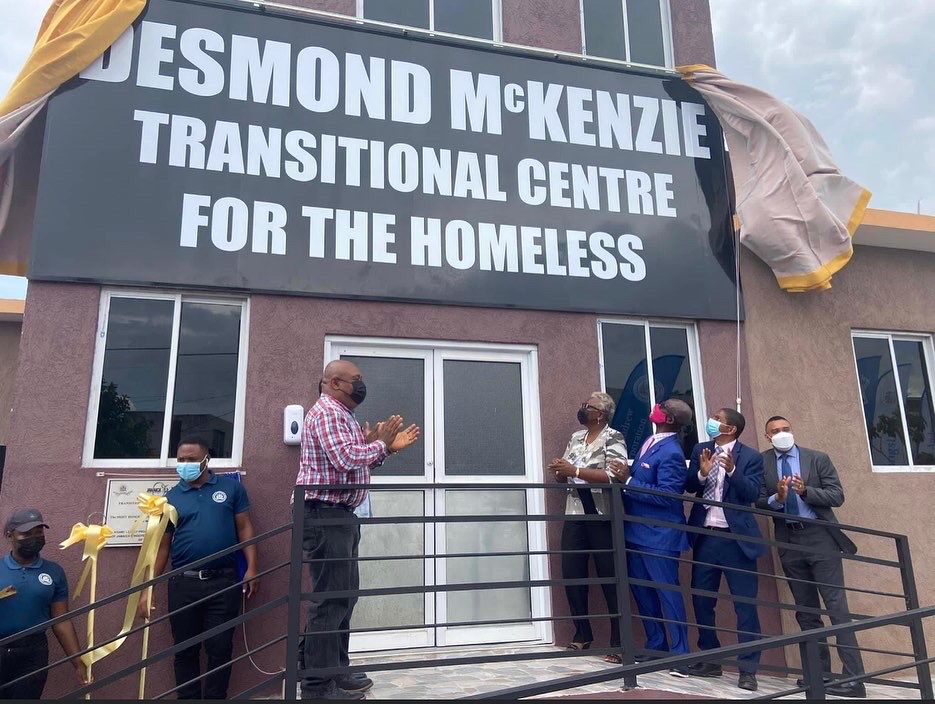
Desmond McKenzie Transitional Centre Helps Law Student Adversely Impacted by Covid-19
(JIS):
When the COVID-19 pandemic was officially declared over in May 2023, it left behind a trail of economic disruption and widespread financial challenges.
For Melissa*, a law student who resided in the Corporate Area, the fallout was more severe than most.
“Coming out of COVID, I lost everything… my job, my apartment and everything with it… because I could no longer pay rent,” she tells JIS News.
With her life thrown off balance and repeated attempts to regain stability yielding no success, Melissa’s mental health began to deteriorate.
“I saw myself derail mentally, because this was a life I wasn’t familiar with. It was beyond hard seeking a job to fit my skills. I felt lost,” she recounts.
To make matters worse, Melissa found herself battling a medical condition that left her hospitalised.
After being released from the hospital, she found refuge at a friend’s home—but it was a temporary reprieve.
“My friend helped me get in touch with the Desmond McKenzie Transitional Centre for the Homeless. I [have been] staying here since May 2023,” Melissa shares.
The facility, situated in downtown Kingston, was opened in September 2022 as part of the Government’s broader initiative to address the growing homeless population in the Corporate Area.
Minister of Local Government and Community Development, Hon. Desmond McKenzie, has indicated that there are approximately 3,000 homeless people living on Jamaica’s streets.
The Ministry, in collaboration with Poor Relief Departments islandwide, has been working to improve the circumstances of these individuals.
In Kingston, many of these persons have benefitted from the haven provided by the Transitional Centre for the Homeless, and the Marie Atkins Night Shelter.
The Centre, which has the capacity to accommodate up to 100 people, prides itself on providing services that help residents reintegrate into the formal society.
Melissa says she has found the Centre to be a familiar and supportive environment.
“I am provided with services at no cost to me; so, in a big way, I have a tangible way of life getting better,” she affirms.
The Transitional Centre also assists its residents with healthcare, daily meals, access to social workers and, importantly, job placements to help them get back on their feet.
In Melissa’s case, she was able to secure a job while she prepares to take the next step: securing housing of her own.
Having attained her law degree prior to losing her residence, she notes that she is looking to pursue her Legal Education Certificate (LEC) – the professional qualification required for admission to practice law in Jamaica.
“I was awarded my degree in 2023. I had already completed this course of study at the time of entering the [transitional] centre. The centre has assisted me [with] paying the application fee for Norman Manley Law School. I await their assessment/acceptance shortly,” Melissa shares.
She emphasises that the Desmond McKenzie Transitional Centre for the Homeless has changed her life.
“I was lost in life and in need of support and ease from the daily struggles. Now with the help I have received, I have hope [and] a better sense of a future,” the aspiring attorney tells JIS News.
She urges anyone facing circumstances similar to hers, “who may be feeling lost and hopeless”, to reach out to the various Government agencies equipped to provide the support they need.
Melissa’s story is all too familiar to Poor Relief Officer at the Kingston and St. Andrew Municipal Corporation (KSAMC), Donna-Gaye Brady.
She notes that shelter usage around the time of the COVID-19 pandemic increased significantly.
“Our temporary shelter at Church Street and the Marie Atkins Night Shelter were both fully populated, accommodating individuals who had fallen on hard times. A number of persons also reached out for assistance from the General Poor Relief Programme due to these struggles,” the Officer says.
She explains that when persons arrive at shelters or transitional centres seeking assistance, they are assessed and a treatment plan is developed for them.
Ms. Brady points out that in Melissa’s* case, “based on our continuous interactions with her, we have now landed her in an internship in the legal field.”
“She may not be in a post that she wants to be in, but it is, at least, giving her more direct experience,” she adds.
Ms. Brady points out that the Poor Relief Department partners with Manpower Employment Services and the HEART/NSTA Trust to place residents in entry-level jobs.
“HEART offers skills training to a number of our residents. Thereafter, for placement, we network and liaise with various individuals who form part of the Municipal Corporation’s network,” the Poor Relief Officer states.
Ms. Brady tells JIS News that the average stay for residents at the Transitional Centre is approximately 18 months.
She emphasises that the facility prioritises mental stability, ensuring that beneficiaries are emotionally equipped and capable of functioning independently before reintegrating into society.
Of the Centre’s current 30 long-standing beneficiaries, Ms. Brady reports that 10 are gainfully employed, while six are currently enroled in school or participating in training programmes.
Minister McKenzie has indicated that another resident is also preparing to enrol in the University of Technology (UTech) to pursue a degree.
He made the disclosure during the July 18th opening of the Portland Drop-in Centre and Night Shelter – the latest addition to the network of facilities catering to homeless people.
Minister McKenzie noted that the shelter—designed to accommodate up to 28 individuals—is the ninth such facility constructed by the Government since 2016, with a total investment of approximately $400 million.
“These facilities are not just built to provide a roof. Care… clothing, meals [and] medical attention are also being provided,” he emphasised.


